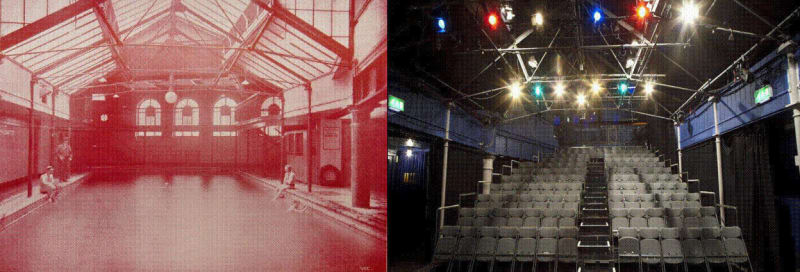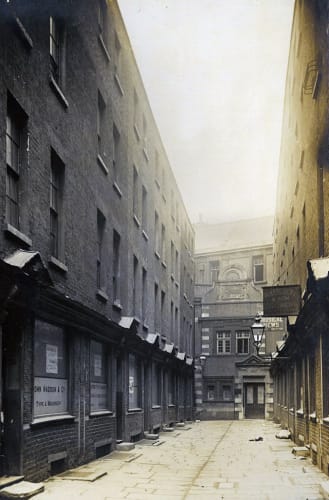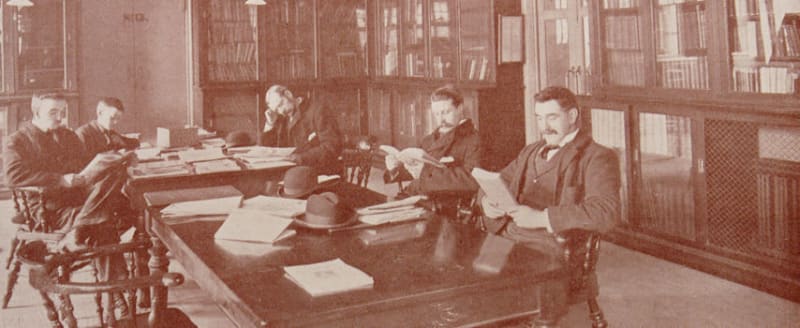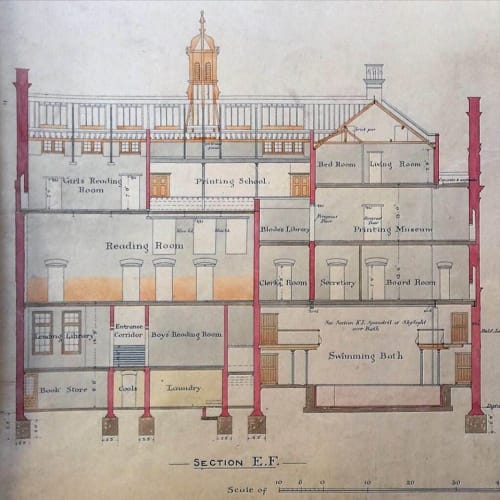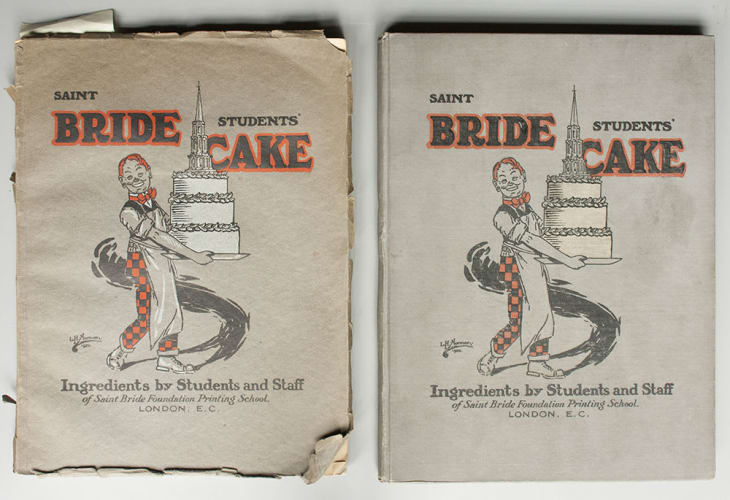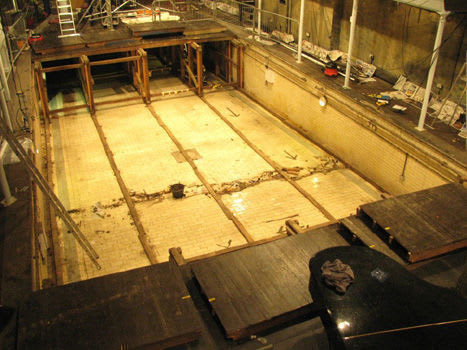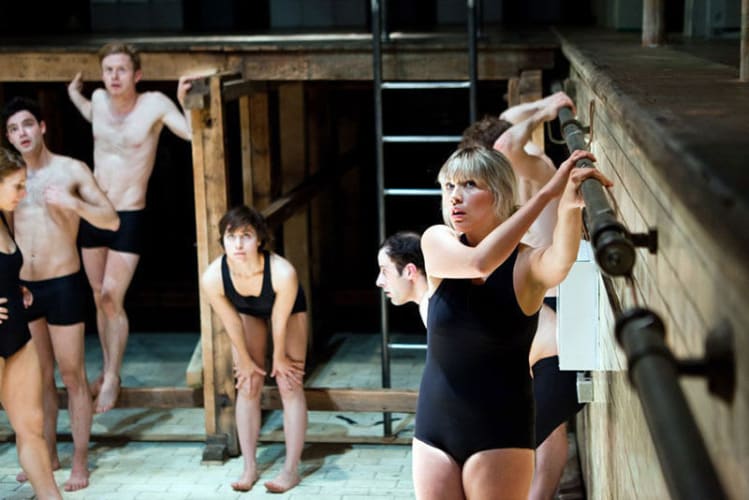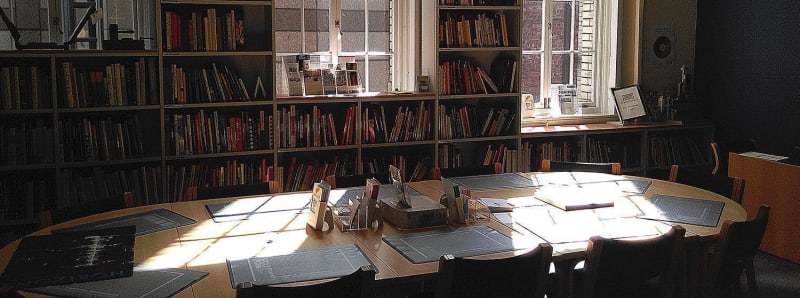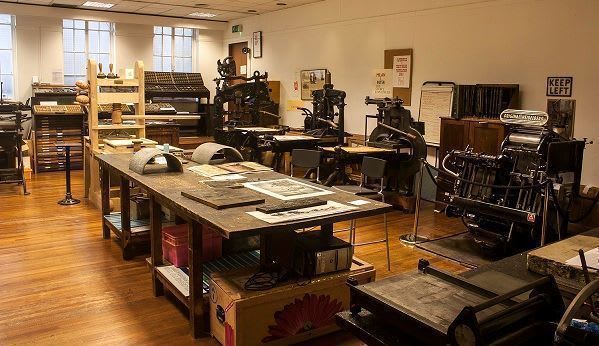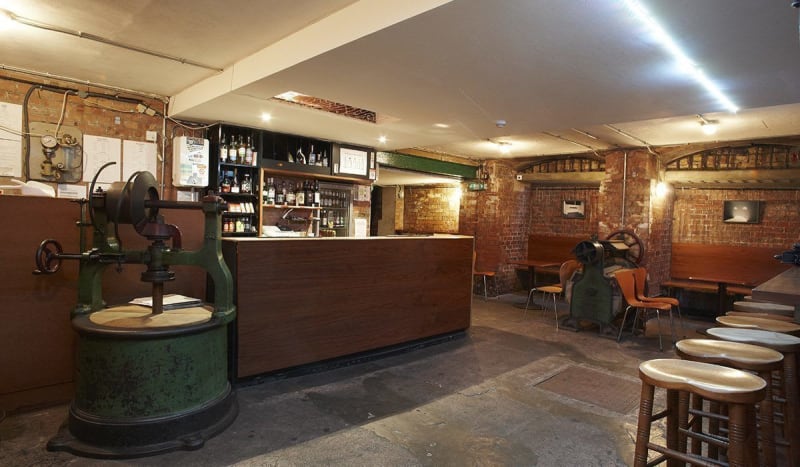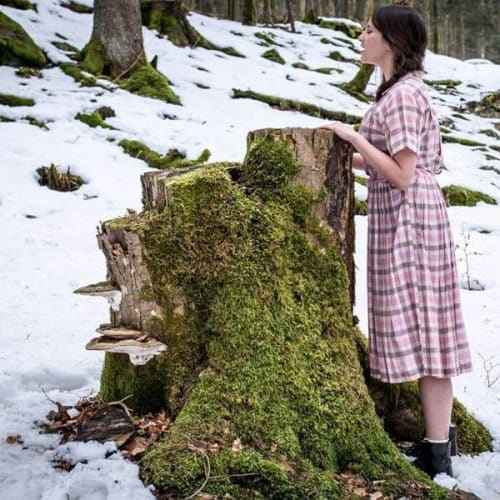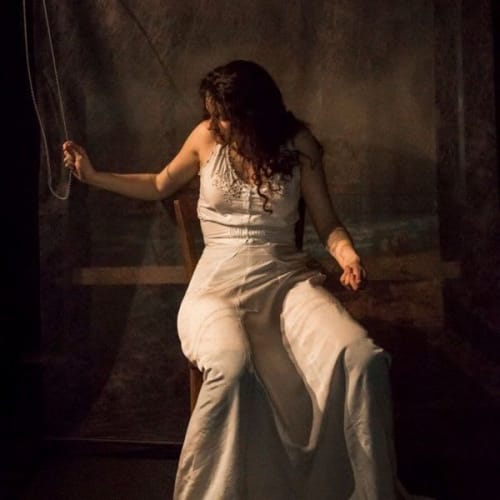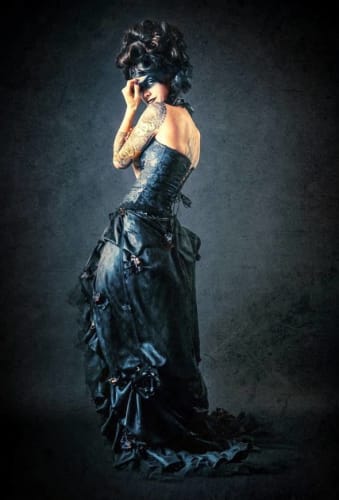Each sentence we produce...
Each sentence we produce, whether we know it or not, is a mongrel mouthful of Chaucerian, Shakespearean, Miltonic, Johnsonian, Dickensian and American
The Ode Less Travelled by Stephen Fry
The pool was closed down for good in the 1970s when the chlorination system broke down and there was no money to fix it and, when it became a full-time theatre in 1994, the wooden cover became a permanent feature, or so it seemed.
In 2011, the cover came off so that the aptly named company Offstage Theatre could put on a production of Steve Waters and Cressida Brown's story of two swimming Olympians, Amphibians, around and in the pool itself.
With raked seating that finished on the floor of the pool, audience capacity stretched to 150. Nowadays, actors only access the pool when they use the trap doors and capacity ranges from 135 down to 111 if the performance is staged in traverse.
But that’s not where it all started. Glaswegian theatre director Carol Metcalfe was the first to use the space as a full-time professional theatre rising to the challenge of making it an income generator.
In 1994, a hundred years after the building opened, Metcalfe presented Julius Caesar and The Merchant of Venice with, John tells me, "quite a few of the reviews mention[ing] that the place still had rats running around during the performance!"
John credits Metcalfe with shaping the theatre as we see it now. She established the Bridewell Theatre Players and ran the company with a team of six, staging a lot of new or unknown musical work.
I remember the Bridewell Theatre as the go-to place to see the work of Stephen Sondheim, then a relatively little-known musical theatre composer and lyricist.
As well as the 1997 world première– a theatrical coup by any standard—of Saturday Night, (book by Julius Epstein) directed by Carol Metcalfe and Clive Paget with musical staging by Tim Flavin, there was Anyone Can Whistle (book by Arthur Laurents) presented by The Gryphon Limited with Paula Wilcox and Janie Dee in 2003, and in 2004 Metcalfe directed the most memorable production of Passion (book by James Lapine ) I have yet to witness, with Clare Burt as Fosca.
John tells me the company went into administration because the business model was unsustainable once Arts Council grants started to dry up in the early 2000s, but the fabric of the theatre was saved from creditors' hands because it belonged to the Foundation and not the company.
Since that time, the Bridewell Theatre, entirely self-funded, runs as a receiving house, with some regulars.
Tower Theatre Company made its base at the Bridewell after losing its Canonbury home in 2003, now also performing at Camden's Theatro Technis and Upstairs at the Gatehouse in Highgate.
Fellow long-standing amateur theatre company Geoids Musical Theatre has staged Top Hat, My Fair Lady and more recently A Chorus Line, and since 2012 Sedos has been resident at the Bridewell putting on eight or so productions a year.
John recalls "We used to have C Company that would do lunchbox shows for about 3 or 4 years and they made a great success of it in partnership with ourselves. They used to have sell-out shows and it was a great feeling to walk down the lane counting people in the queue."
I remember racing down to the Bridewell in my lunch break to see Jessica Swale's Mad Kings and Englishmen: History hung, drawn and quartered! Part 1 - History Begins (Red Handed Theatre Company), C Company's Out of Office, Romeo and Juliet and a 1920s-set Hollywood musical version of Twelfth Night.
These last two were part of their Bard at the Bridewell seasons for which Shakespeare wasn’t so much précised as key story elements extracted to form a standalone play. Much Ado About Nothing, Measure for Measure, The Merchant of Venice, The Tempest (with Baseless Fabric), Macbeth, As You Like It, The Two Gentlemen of Verona and A Midsummer Night’s Dream all got the condensing treatment for City workers to enjoy whilst eating their lunches.
Other regular events are the annual panto, Give It Some Room's A-Ladd-in-the-City!, The Spread Eagle Players' Jack and the Beanstalk, JED's WHITTINGTON: A Dick in the City and last Christmas's Puss In Kinky Boots, to name but a few, but there are also ballet and opera productions at the more high brow end of the range.
Coming up at the venue is a continuing eclectic mix of work including Tom Stoppard's Arcadia presented by the Tower Theatre Company, Dogfight written by Benj Pasek, Justin Paul and Peter Duchan presented by Sedos, and Marchland, a multi-genre season of work from Strasbourg’s Théâtre Volière about Europe's border regions, which includes the première of a new play Arnika, a dramatised talk by Former UN War Crimes Prosecutor in Kosovo Alex Batesmith, Blackbirds and Blue Helmets, storytelling, music, poetry and conversation.
For those who want to try out Lunchbox Theatre, the Marchland season includes daytime performances and August Strindberg's Pariah is opens in early March.
See the web site for public events upstairs—the spaces above host everything from London Craft Week to funeral teas and from to law seminars run by local barristers to speeches by Ed Milliband.
The bar is also a performance space, a home to impro and live music (there have been exhibitions in the bar, and once in the pool!) but surprisingly not much stand-up comedy.
John advises that the theatre has no artistic policy: "if people have the money to hire the place, that’s what we're here for. We don’t have an agenda—there is almost nothing that we wouldn’t put on and there are all sorts of strange and quirky things that go on here."
It confirms that the doors of the St Bride Foundation are still open in service to its local community.
The St Bride Foundation offers courses in letterpress printing, wood engraving and bookbinding from beginners to advanced levels which are open to public.
The Reading Room is open to the public twice a month and there is a programme of fundraising talks, lectures and events.
In addition to the theatre, many of St Bride's rooms are available for hire for weddings, business and social events.
Sandra Giorgetti would like to thank Cressida Brown and Richard Davenport for permission to use Amphibians images, Maya Willcocks for permission to use Marchland season images and especially John Rankin.
